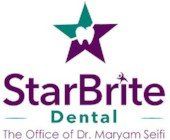Wisdom Tooth Extraction in Rockville MD
Wisdom Teeth: Why They Matter and What to Expect
“Wisdom teeth” sounds much better than “the last teeth to come in.” Doesn’t it? But that’s all “wisdom” refers to—something that comes with time. Wisdom teeth, otherwise known as “third molars,” are the last teeth to break through the gums; they tend to appear anywhere from the late teens to the early twenties.
There’s nothing inherently good or bad about wisdom teeth. Some people don’t even have any. Some have more than the usual four, some have less. Some people’s wisdom teeth grow in at odd angles. Some grow in too close to other teeth and crowd the mouth. Some grow in without any trouble at all. But sometimes, there are complications with a person’s wisdom teeth.
Featured Video: Introduction to Wisdom Teeth
Wisdom Teeth Issues Can Include:
QUICK FACT: Some Have More “Wisdom” than Others
Get ready for your new dental term of the day: supernumerary teeth. That’s a fancy way of referring to teeth beyond the average number that most people have. If you have supernumerary teeth, you also lay claim to the term, hyperdontia.
When it comes to wisdom teeth, the standard four isn’t always the case. Some people have been known to have six or more. And on the other end of the spectrum, some people never have wisdom teeth at all. These folks have hypodontia (fewer teeth than the average number).
What does all that mean for dental health? The answer is that it dictates how many wisdom teeth you might have to get extracted if they are causing problems such as overcrowding or masking infections. As for people with no wisdom teeth or fewer than four, they just have less or no likelihood of wisdom tooth extractions!
What Patients Are Saying About StarBrite Dental
The Wisdom Tooth Removal Procedure
Removing a wisdom tooth is the most common type of surgical extraction. It’s called “surgical” because it requires expertise beyond the ability required to remove easier-to-access teeth. The deep position of wisdom teeth in the mouth, the proximity of upper wisdom teeth to the sinuses, and the proximity of the lower wisdom teeth to vital muscles and nerves all contribute to the need for specialized training.
The procedure itself is straightforward:
- The tooth and its supporting bone tissue are exposed by making an incision in the gum
- If there is bone blocking access to the tooth, it is removed.
- The tooth is removed
- The site is thoroughly cleaned to be sure there is no tooth or bone tissue left behind.
- The incision is closed with stitches, to help it heal more rapidly and thoroughly.
- Gauze is put over the site for a while, to slow down bleeding and help in the formation of a blood clot
While the process seems fairly simple, it is the sensitive nature of the areas surrounding your wisdom teeth that calls for the expertise of an oral surgeon (a specialist who can handle wisdom tooth issues) like the one we have on staff at StarBrite Dental. In order to safely perform wisdom tooth extractions, one needs a thorough understanding of such things as:
However complicated or uncomplicated your individual wisdom teeth situation is, at StarBrite Dental, we’ll give you a thorough overview of your specific procedure and recommend what type of anesthesia to use. It may be enough to simply numb the area with a local anesthetic, which is quite usual.
A Note on Removing Wisdom Teeth in Teenagers
Opinions differ on whether or not wisdom teeth should be removed as a matter of course, given their association with dental difficulties. After all, some people have their wisdom teeth come in just fine and never need to have them removed.
But, once there has been a problem with one wisdom tooth, there is expense, discomfort, and inconvenience to consider; multiple extractions, done individually over the course of time, may not make a lot of sense
Oral surgeons tend to dislike the idea of removing healthy teeth, unless they pose a potential threat to your overall dental health. That’s how we feel at StarBrite Dental. But if a teenager’s first wisdom tooth comes in poorly, we’ll definitely discuss the benefits of removing even the unerupted ones, given the likelihood of additional extractions later on.
Featured Video: Top 5 Things to Know About Wisdom Teeth
After a Wisdom Tooth Removal Procedure
Even if we only numb the area of the extraction, you will still have had a surgical procedure performed in your mouth therefore we recommend a no-hassle ride home in someone else’s car.
Your StarBrite dental team will send you home with a complete set of instructions for taking care of yourself, instructions such as:
- Don’t drink through straws while healing to void dislodging your blood clot.
- Manage pain with over-the-counter pain relievers; pursue a prescription medication only if absolutely necessary.
- Don’t smoke—a good idea anytime, but especially after a wisdom tooth extractions, since tobacco can slow the healing process.
Make sure that you have a ride home arranged after the extraction. Even if we only numb the area of the extraction, you will still have had a surgical procedure performed in your mouth, so we recommend a ride home with someone else.
If you're looking for trusted care for your wisdom teeth removal in Rockville, MD, our experienced team at StarBrite Dental is here to help.
Contact Us to Schedule an Appointment Today!
*We DO NOT ACCEPT HMO Insurance, State Insurance, Medicaid/Medicare, or discount plans. Fees apply for services. and same-day appts/emergencies.
Evening and Weekend Hours Available
- Monday
- Closed
- Tuesday
- -
- Wed, Fri
- -
- Thursday
- -
- Saturday
- -
- Sunday
- Closed
Office
(301) 770-1070
Fax (301) 770-0544
5936 Hubbard Dr, Rockville, MD 20852


